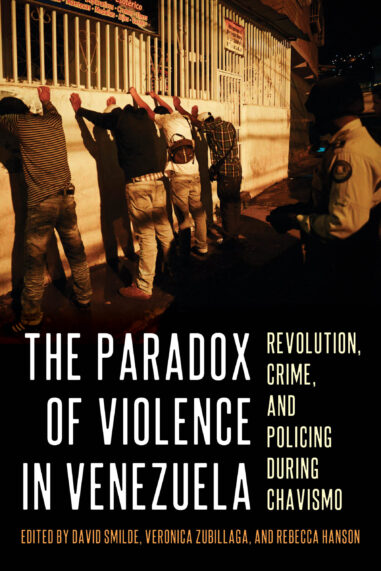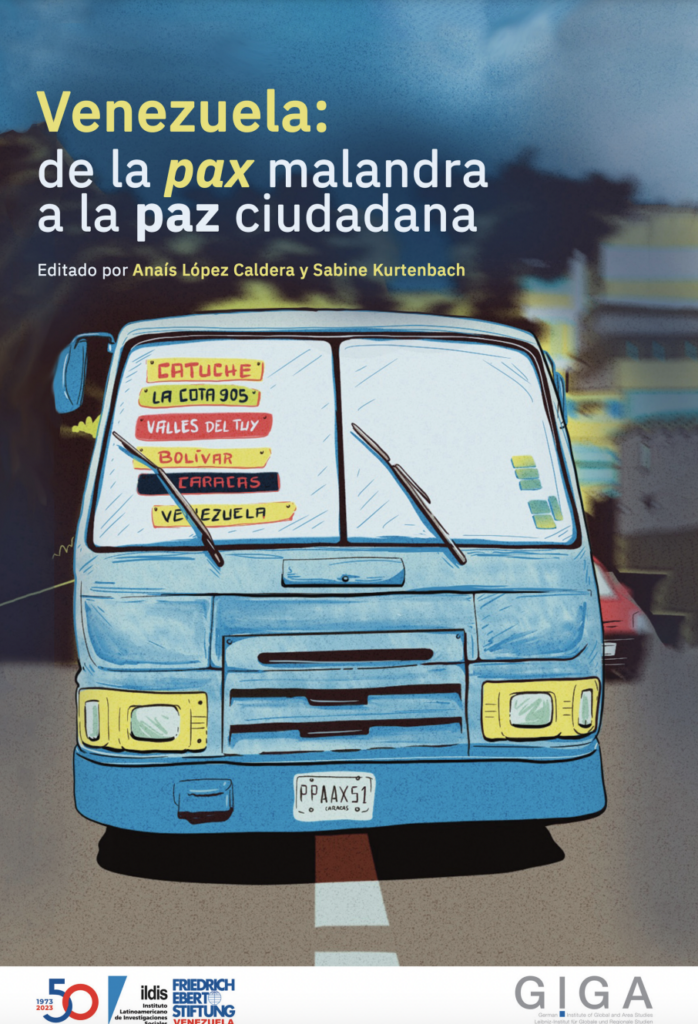Two New Books Continue Exploring Venezuela’s Paradox of Violence
The international academia is still trying to figure out how an oil bonanza translated into extreme violence and overspread corruption. Here’s a review of a couple of interesting titles


“A town hall is not ‘The Grave’s’ purpose”, is what Giovanni Rondón, a gang leader nicknamed “Tumba” (Grave), says on a television interview found on YouTube as part of a farewell video eulogy, uploaded after his murder. He is referring to his political aspirations while appearing alongside current Sucre mayor José Vicente Rangel Ávalos, touting what were the initial stages of the now infamous “Zonas de Paz” or the government’s unofficial program to promote peace through negotiations with armed gangs in several sectors of the country.
The anonymous interviewee shared his experiences with Rondón, alleging that the gang leader was the original mastermind of the Zonas de Paz. An idea that, according to Rondón, sprung from his initiative of reuniting more than one hundred gang leaders in the area of Valles del Tuy to promote agreements of co-existence between them in 2011. This effort, he says, sparked the government’s attention and official spokesmen began to reach out to him. The most surprising of all these allegations is that Giovanni Rondón was an escaped convict at the time. He had been imprisoned in 2009 and sentenced to 19 years in jail, but yet we find him a couple of years later chatting away about his impressions regarding political plans in Charallave, accompanied by government officials. His reign ended soon as he was executed by a gunman a few weeks later.
What are we to make of these allegations? This is just one of many questions raised by the perplexing expressions of violence in Venezuela that two recent publications edited by international scholars try to unravel and make sense of. Both books explore questions that these years have brought on, relevant not only to our country but also to our region.
The Paradox of Violence in Venezuela: Revolution, Crime and Policing During Chavismo, was published by Pittsburgh University Press in 2023. It was edited by three leading researchers on violence in Venezuela: David Smilde, Verónica Zubillaga and Rebecca Hanson. Smilde, who has a long lasting relationship with our country, is also a professor at Tulane University and was Senior Officer at the Washington Office on Latin America. Zubillaga, an academic based at the Simón Bolívar University, is currently a visiting professor at Columbia University and Rebecca Hanson is professor at the Center for Latin American Studies at the University of Florida.

They have compiled a series of chapters written by leading Venezuelan and international researchers that discuss issues that include the apparent paradox of why –if inequality has been found to have an inverse correlation to violence in many places– the years in which poverty and inequality decreased in Venezuela, only showed a rapid rise in homicides. The discussion includes debates on the veracity of data, the changing dynamics of violence, ethnographic studies in jails and poor neighborhoods and four chapters on policing, that include harrowing evidence of the systematic use of state violence. For example, Hanson and Leonard Gómez cite a FAES commander in an interview confessing: “if someone has a warrant for homicide it’s a gift, we have a green light to kill him”.
From another perspective, Josefina Bruni Celli and Javier Rodriguez’s chapter use quantitative analysis to evidence the paradoxical findings in Venezuela, in regard to the increase of violence during periods of economic growth and decrease of inequality. They argue, looking at similar findings in other oil countries, that this can be rendered comprehensible by including the institutional capacity of the state, explaining how the exponential increase of revenues brought by oil booms increases incentives and opportunities for crime, while simultaneously overwhelms the state’s capacity to manage, distribute and monitor this sudden wealth. An argument that is not far from Fernando Coronil’s classic anthropological interpretation of Venezuelan political culture that he termed the Magical State as well as more recent criminological literature.
The discussions in the book were developed over seven years through various conferences, so the chapters are interconnected among them. The result is a layered text that unpacks the hypertrophic state, a revolutionary governance that disrupted the State from within, the persistence of concentrated disadvantage and the militarization of policing, offering a thorough description of the many facets of the country’s violence while diving into many of the debates that continue open.
While many economic and political frames are presented, the relationship between these elements and local culture links both books. In The Paradox of Violence Hanson and Smilde explore survey results that show how support towards repressive policing and distrust towards human rights discourses are shared across the political spectrum.
The way violence has become not only a pillar for government power, but also an option supported by a huge part of public opinion independent of their political preferences, evidences the complex challenges the democratization of the country still faces even beyond the resolution of Chavismo’s authoritarian chokehold of the country.
The second book, Venezuela: de la Pax Malandra a la Pax Ciudadana –edited by the German researcher Sabine Kurtenbach along with the Venezuelan sociologist Anais López and also published in 2023– opens with the curious fact that Venezuela has not been in a war for more than 120 years, and yet, can hardly be called a peaceful country. This invites the question of “what is peace?”; which Kurtenbach, a scholar on peace studies, has been asking in different international settings. Through a combination of quantitative and qualitative data, recollected by a series of studies by different researchers, the book explores the influences of security, the rule of law and the existence of institutions that mediate conflict as significant explanatory variables of violence and peace.

One very relevant question refers to what are we to make of the recent decrease of the country’s homicide rate, particularly in the midst of a continuing economic and political crisis. The answer can lead to emphasizing different solutions in the coming years in regard to citizen security. Does this mean we have less violence? Or is it possible that state violence has imposed itself on other expressions? Or has the evolution of violence, that has led to the creation of larger gangs known as “mega-bandas”, reduced in-fighting between them? Has what “Tumba” allegedly tried to do continued in other shapes? Or maybe it is a combination: the escalation of these gangs towards larger mega-structures and their increasing interaction with government sectors has led to a decrease in low-scale confrontations among them, as well as governmental control of some criminal expressions.
Both books offer tentative answers to these complex issues but have the value of opening space for a much needed debate in regard to the intertwinings of criminal and state violence in Latin America. A debate that is relevant in other countries of the region.
I have had the fortune of participating in both books and feel enlightened by the work of so many brave and rigorous colleagues reflecting on these urgent issues.
Giovanni “La Tumba” Rondón cannot answer these questions now. But the trail of curious events, as well as relationships he left behind, seems to hint at some of these answers. The quick and tragic end to his life also underlines the logics that continue to dictate a dark side of our culture and much of our community life.
Caracas Chronicles is 100% reader-supported.
We’ve been able to hang on for 22 years in one of the craziest media landscapes in the world. We’ve seen different media outlets in Venezuela (and abroad) closing shop, something we’re looking to avoid at all costs. Your collaboration goes a long way in helping us weather the storm.
Donate




